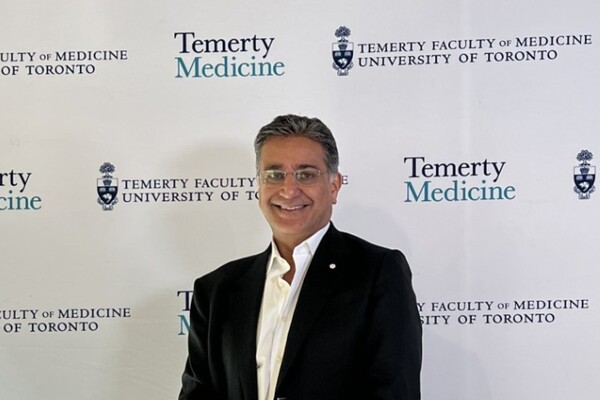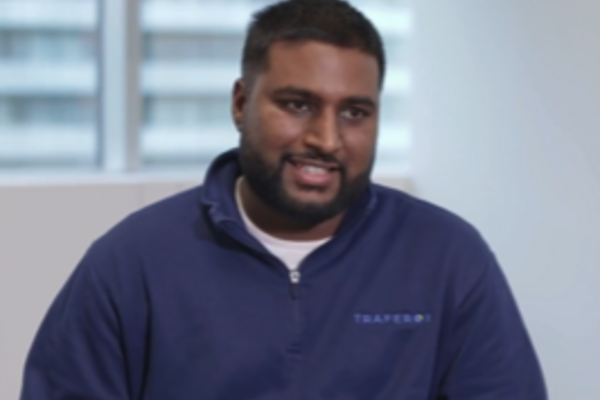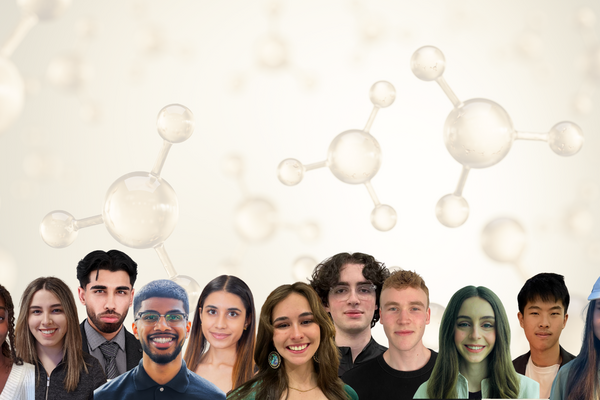Main Second Level Navigation
Breadcrumbs
- Home
- News & Events
- News
- Temerty Medicine graduate spotlights 2025: Innovating health through research
Temerty Medicine graduate spotlights 2025: Innovating health through research
With graduation on the horizon, writer Sarah McMahon spoke with two exceptional graduating students from the Temerty Faculty of Medicine. They discussed what inspired their research paths, the lessons that shaped them, and offered thoughtful advice for those just beginning their graduate studies.
Insiya Bhalloo, PhD – Rehabilitation Sciences Institute
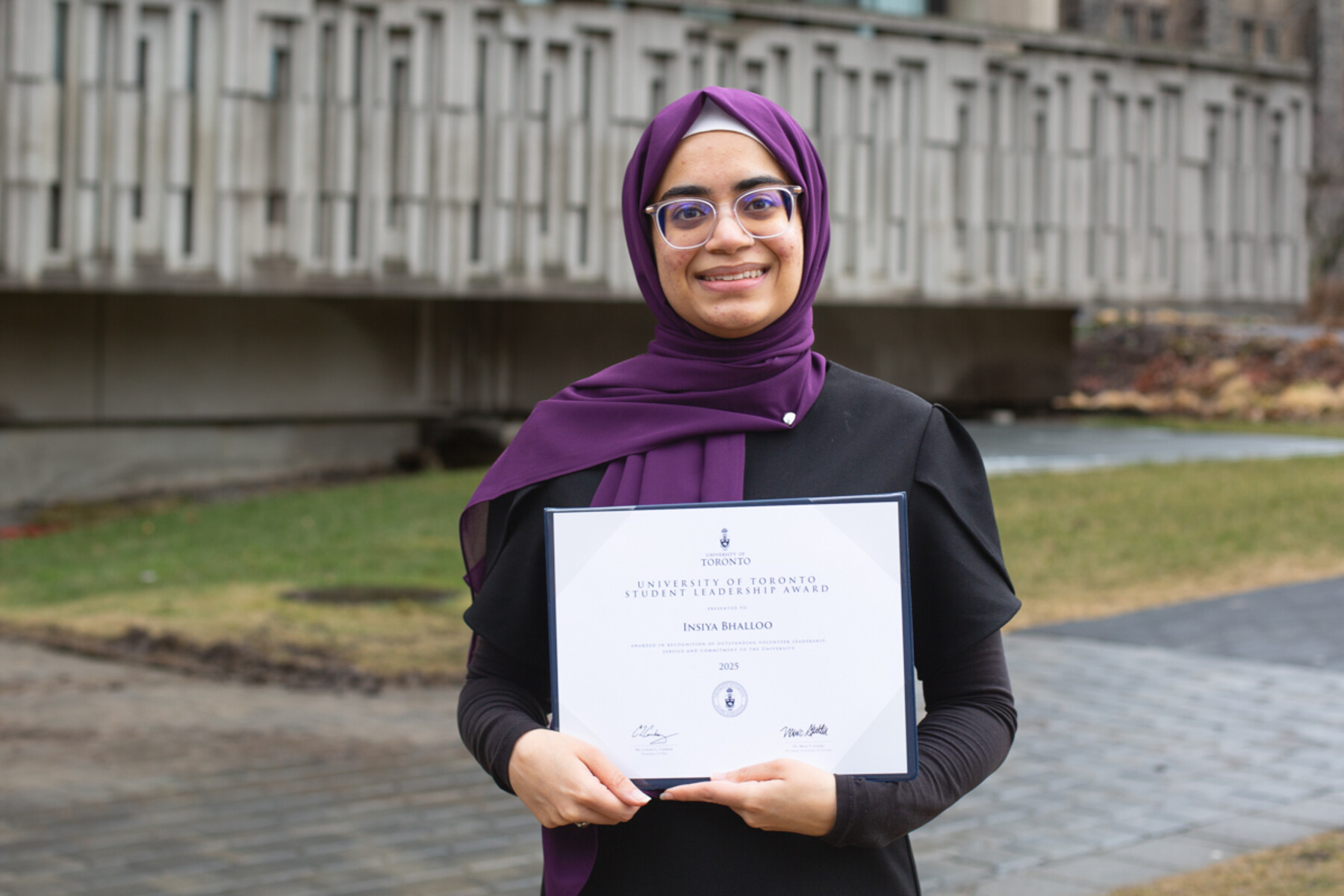
Growing up in a multilingual, multicultural community in Canada, I saw how language could be either a bridge or a barrier—especially for children navigating education. This sparked a passion for health science research and a commitment to ensuring that all children, regardless of the language they speak at home, have equitable access to literacy and communication support.
Through clinical experiences and work in diverse communities across Canada, Pakistan and East Africa, I witnessed critical gaps in how we assess and support bilingual children’s language and literacy development. These experiences deepened my resolve to pursue research that is community-informed and practically applicable. I was especially drawn to the intersection of speech-language pathology, technology and education. Health science research gave me the tools to ask meaningful questions and create inclusive, data-driven solutions that support multilingual learners and the professionals who work with them.
My time at Temerty Medicine was transformative. Leading projects that translated research into real-world tools and seeing them used in classrooms and clinics was incredibly meaningful. I was also fortunate to be part of a vibrant, interdisciplinary research community. Collaborating across disciplines broadened my perspective, and the mentorship I received—especially from Dr. Monika Molnar at the Bilingual and Multilingual Development Lab—empowered me to design culturally responsive tools and bridge health science with education.
Beyond research, I valued my involvement in the graduate student community. Serving on student-led equity and advocacy committees like Graduate Language Research Day gave me a platform to promote inclusive practices and support my peers. Teaching and mentoring undergraduates reaffirmed my passion for education and my commitment to nurturing the next generation of equity-focused researchers and clinicians. While receiving awards like the UTSLA, SSHRC and OGS was encouraging, what stayed with me most were the relationships I built and the knowledge that my work is contributing to more inclusive systems in healthcare and education.
I’m currently a postdoctoral fellow at the University of Alberta’s Multilingual Families Lab, within the Faculty of Rehabilitation Medicine. This role builds directly on my doctoral work, allowing me to explore how we can design linguistically and culturally responsive literacy tools for multilingual children—particularly by integrating artificial intelligence to enhance oral-language assessment. I was drawn to the lab’s strong commitment to community partnership and inclusive research, led by Dr. Andrea MacLeod. I’m excited to expand the reach of this work and contribute to new open-access tools that can be used globally.
Looking back, I’d tell my first-year self to trust the process and believe that your voice, and the communities you care about, belong in research spaces. Growth isn’t linear—it comes through challenges, honest conversations and stepping outside your comfort zone. Celebrate the small wins. The late nights, the reworked drafts, the repeated analyses—they all matter. You’re building something meaningful, even if you can’t always see it yet.
To incoming graduate students: stay curious and be kind—to yourself and others. Surround yourself with mentors and peers who align with your values. Be open-minded and patient with your research. Choose questions that excite you and reflect your unique perspective. Collaborate widely, seek feedback often and take care of your well-being. Grad school should be demanding, but also deeply fulfilling.
Mehakpreet Thind, PhD, Nutritional Sciences
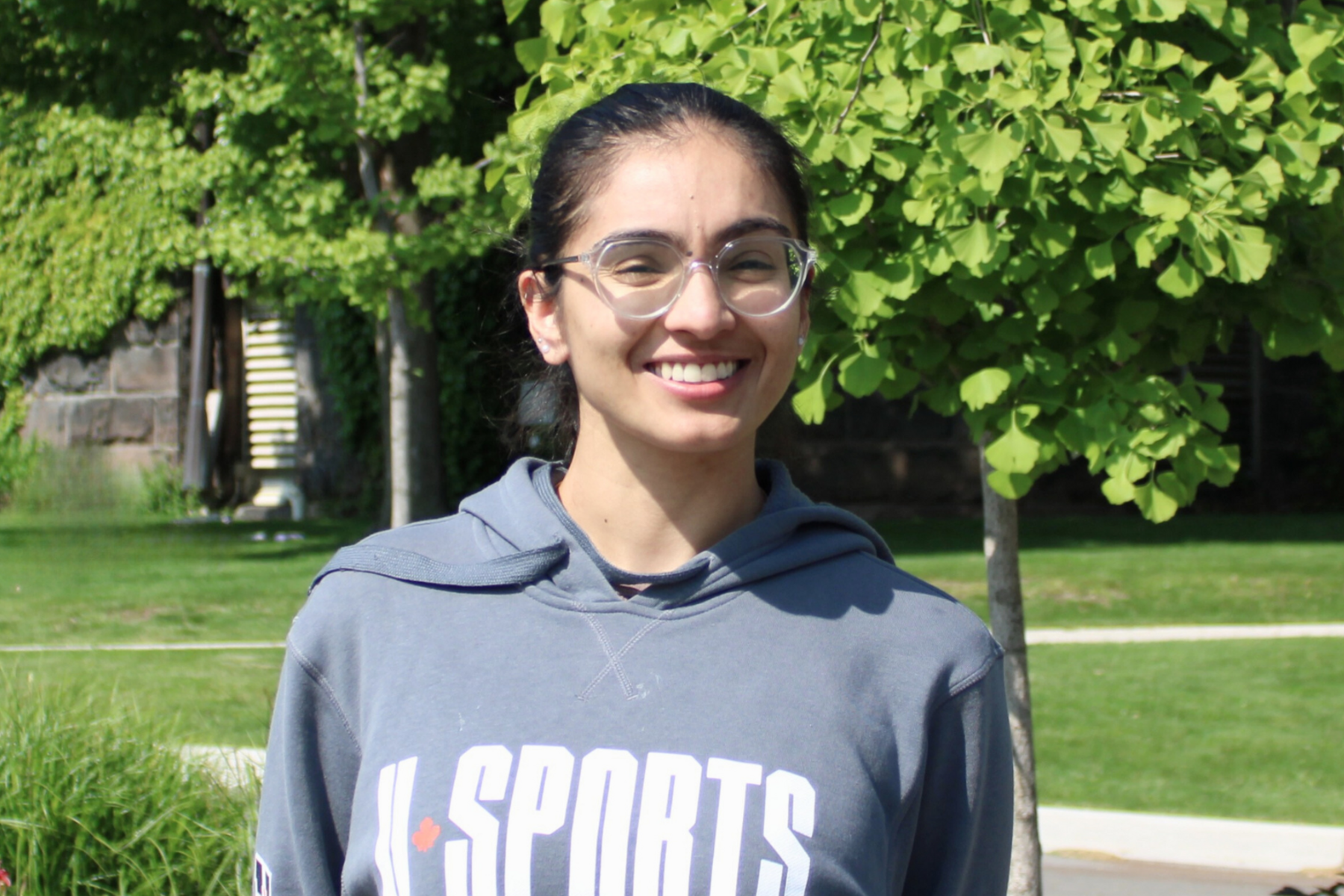
As someone of South Asian descent, I witnessed firsthand the disproportionate impact of metabolic diseases like type 2 diabetes within my community. Growing up, I saw how traditional dietary habits—rich in carbohydrates and fats—contributed to the onset and progression of diabetes among family and peers. This sparked my interest in nutrition and its potential as a therapeutic tool. I became especially drawn to the concept of precision nutrition—the idea that tailored dietary interventions, informed by genetic, environmental and cultural factors, can help manage and even prevent chronic diseases. This led me to pursue health science research with a focus on integrating nutrition into evidence-based therapeutic practices.
As a PhD student in the Department of Nutritional Sciences, I’ve had the opportunity to explore this field in depth. My goal is to translate this knowledge so others can also see food as a powerful tool for health and healing. I’m especially passionate about the translational capacity of health science research—the ability to turn laboratory discoveries into real-world solutions. This bench-to-bedside approach is at the heart of my work. Precision nutrition is a rapidly evolving field, and I’m excited to be part of a community where cutting-edge research is paving the way for more effective and individualized interventions.
Some of my most memorable experiences as a graduate student came from presenting at conferences in Canada and abroad. These opportunities helped me strengthen my presentation skills, connect with experts in immunology and nutrition, and build a professional network. I also learned a great deal from my peers at Temerty Medicine, whose diverse perspectives and collaborative spirit shaped my academic and personal growth. Serving as a teaching assistant was another highlight—it allowed me to support student learning while developing my communication and leadership skills.
One of the most meaningful experiences was my time in Kenya, where I saw firsthand how research can directly impact lives in a global health context. It reinforced my passion for translational science and deepened my commitment to work that improves health outcomes across communities.
In September, I will begin a postdoctoral fellowship in the lab of Dr. Oliver Söehnlein at the University of Munster in Germany. There, I will study the intersection of food composition and immunology, focusing on how nutritional components influence immune mechanisms in the context of obesity. This highly translational work aims to identify targetable pathways that could improve public health outcomes—an area I am deeply passionate about.
If I could speak to my first-year self, I’d say: trust yourself—everything will be okay. Enjoy your time as a graduate student; it goes by faster than you think. I’d also encourage myself to take part in more extracurricular activities and faculty opportunities. They enrich the graduate experience, help build meaningful connections and provide balance alongside the demands of research and coursework.
To incoming graduate students, my advice is to be passionate about your research topic. That passion will sustain you through challenges and keep your curiosity alive. Don’t be afraid to ask questions—whether they seem difficult or basic. Research thrives on inquiry. Never hesitate to ask for help. Graduate school can be intense, and it’s okay not to have all the answers. Collaboration and support are essential to good science. Most importantly, take care of yourself. Success in graduate school isn’t just about academic achievement—it’s also about personal growth, resilience and maintaining balance.
